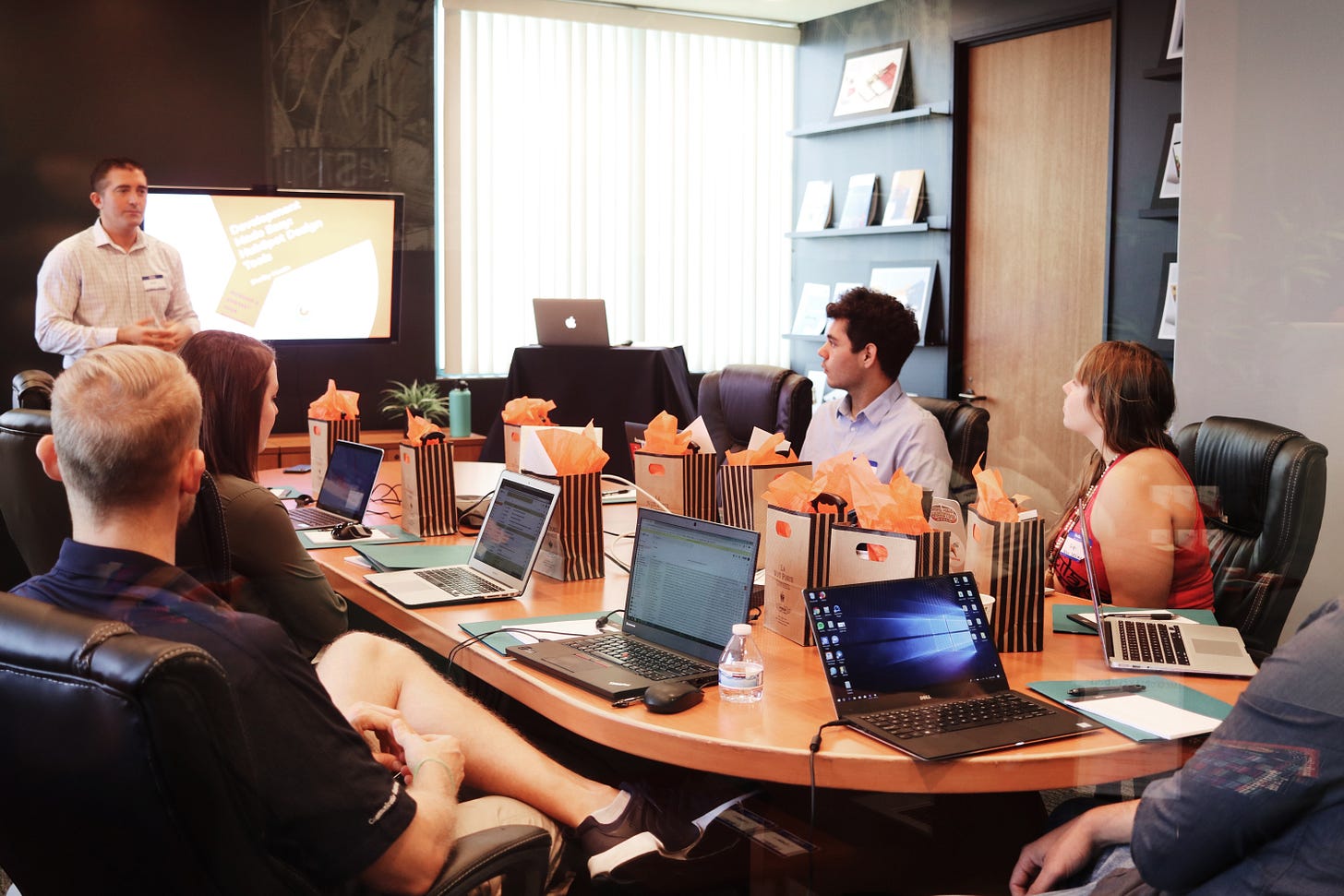
Have you ever attended a meeting or workshop that was a complete waste of time? Maybe the goal wasn’t clear, there was no agenda, the activities seemed meaningless, or it just didn’t feel like anything was getting accomplished. Or, have you ever been asked to facilitate a workshop you felt was unnecessary? Perhaps you felt like you were arbitrarily filling in the hours as you structured the agenda.
Understanding the differences between meetings and workshops can save everybody’s time, make the most of group collaboration, and avoid creating a bad reputation for workshops.
What is a meeting (AKA “talkshop”)
Purpose: meetings are where things get discussed and a way for people to share information, like general knowledge sharing or sharing status updates among team members. These discussions could cover several topics, and decisions or action items don’t necessarily have to be defined or acted upon during the same gathering.
Scope: shallow coverage of many topics.
Length: measured in minutes or hours.
Structure: typically conversational driven where attendees speak and listen.
Preparation: focused on meeting outline and presentation design.
Common situations where meetings are appropriate:
Project kickoff: An initial gathering of team members who are converging to work on a project together, where key information such as project briefs and roles are discussed
Standup: A quick (typically 15-minutes) daily, literal standup of a cross-functional team to share updates on progress and obstacles across work-streams
Retrospective: A regularly occurring discussion where teams reflect on how they work together and consider ways to improve their processes
One-on-one: Dedicated time for leads or managers to meet with a direct report to discuss projects, personal growth, and development opportunities
Leadership sync: Cross-functional leads over several subteams gathering to discuss progress, learnings, and outstanding action items
Team meeting: Team members coming together to share work, knowledge and sources of inspiration.
What is a workshop
Purpose: workshops are where things get done, and a way for people to solve problems that require input and consensus from diverse groups or that would benefit from a sense of shared ownership, with a concentrated time dedicated to idea generation and hands-on activities that allow groups to achieve an actionable, predefined goal.
Scope: deep, focused coverage of an issue.
Length: measured in half-days or days.
Structure: active participation in group activities and artifact creation.
Preparation: includes buy-in, agenda creation, presentation design, workshop materials, activities and tools
Common situations where workshops are appropriate:
Discovery workshops: Team members and key knowledge holders converge to understand the current state and build consensus for milestones and plans for an upcoming project.
Empathy workshops: Designers, researchers and other stakeholders create a shared understanding of user needs before designing a solution.
Product development workshops: Cross-disciplinary team members gather to rapidly generate and discuss a wide set of ideas from various perspectives.
Prioritization workshops: Team members and other key decision makers come together to decide which items are most important and prioritize them.
Critique workshops: Roles integral to the design process collaborate to analyze and improve a design so that it meets its objectives.

